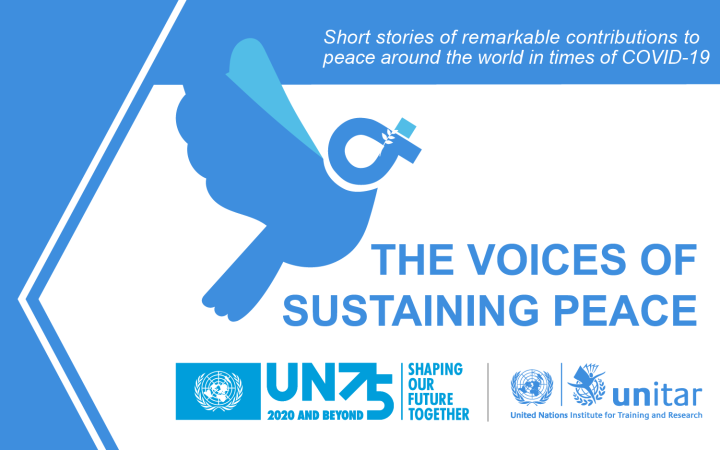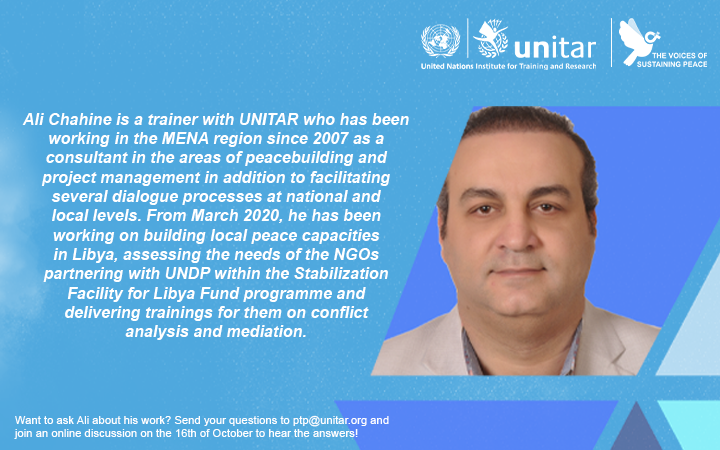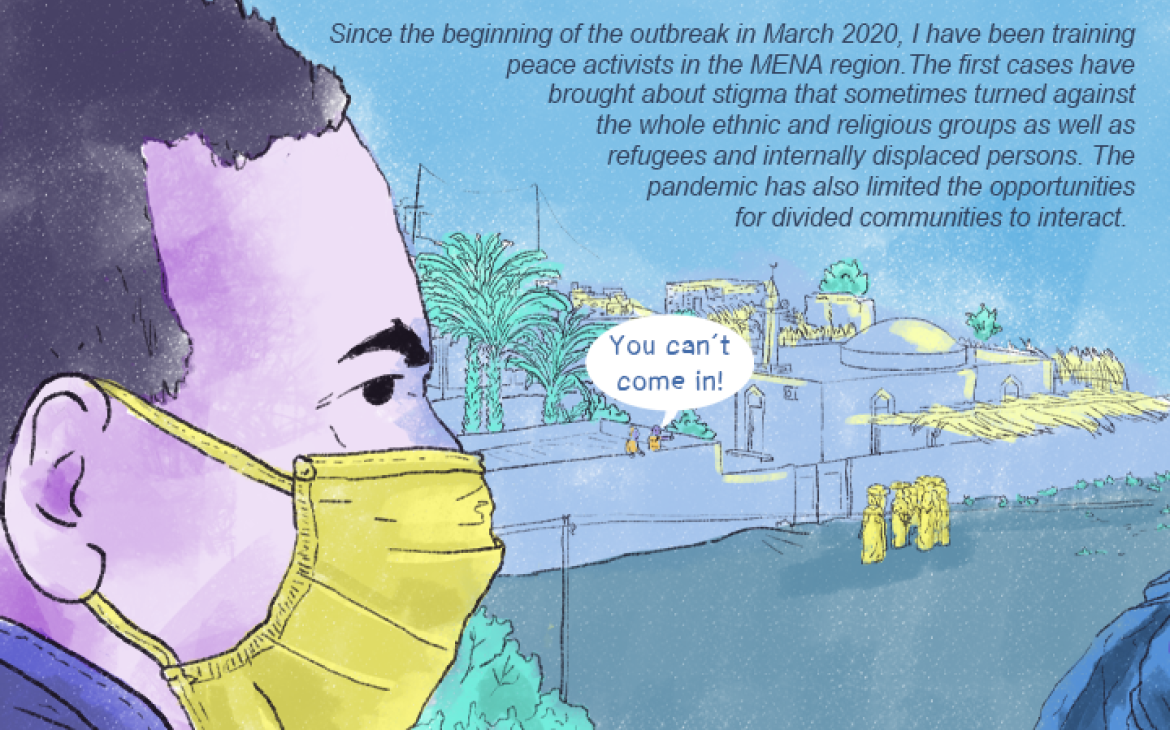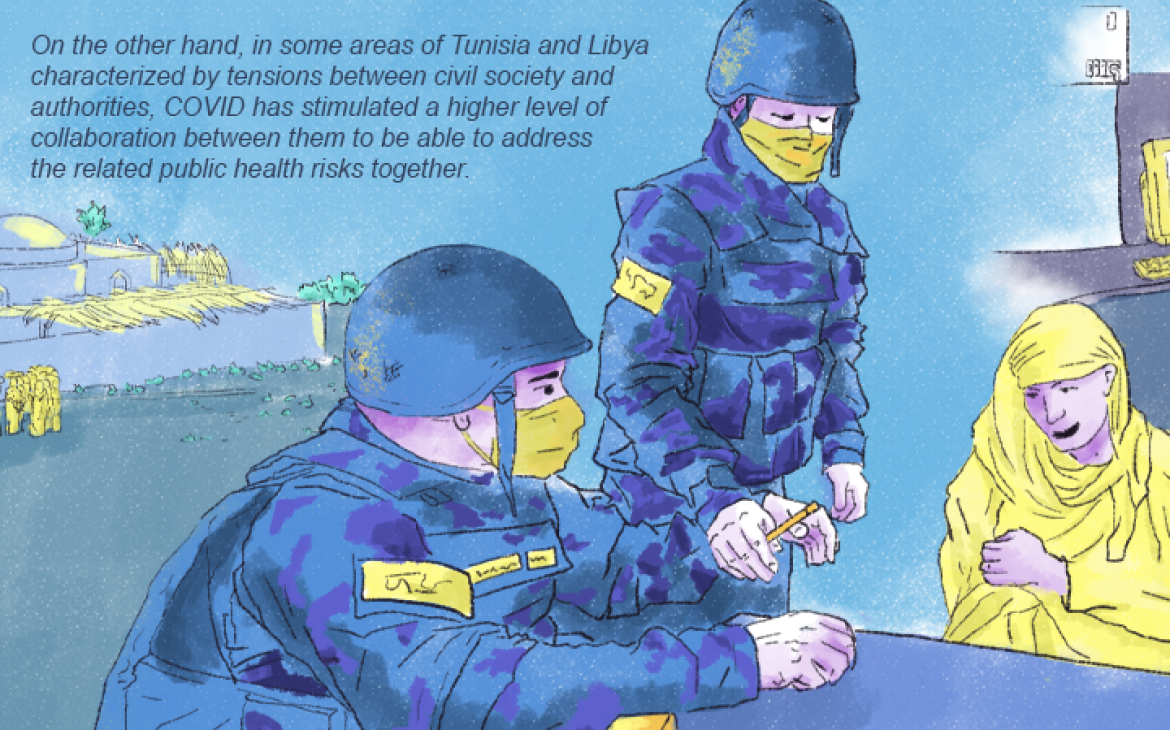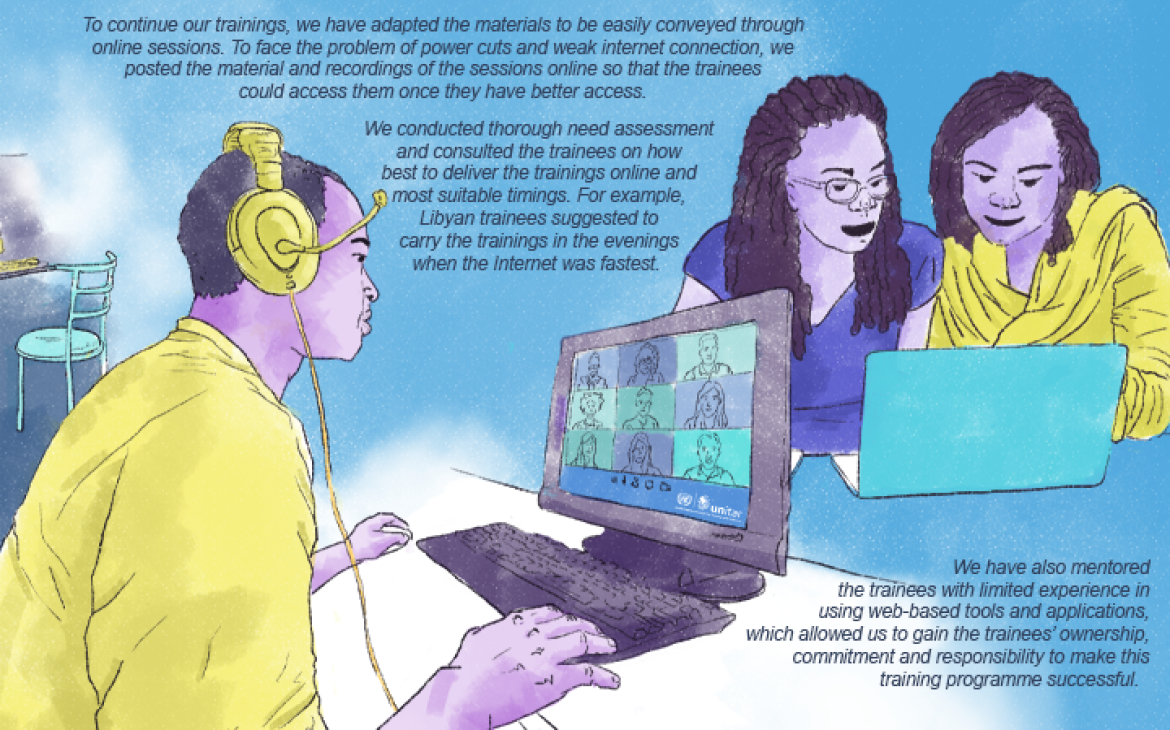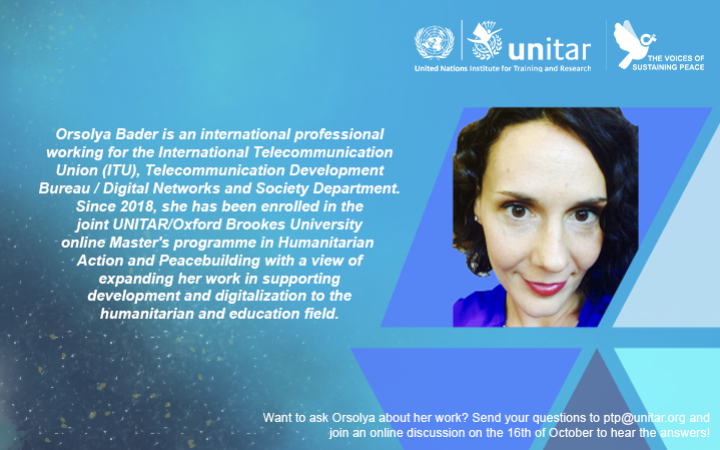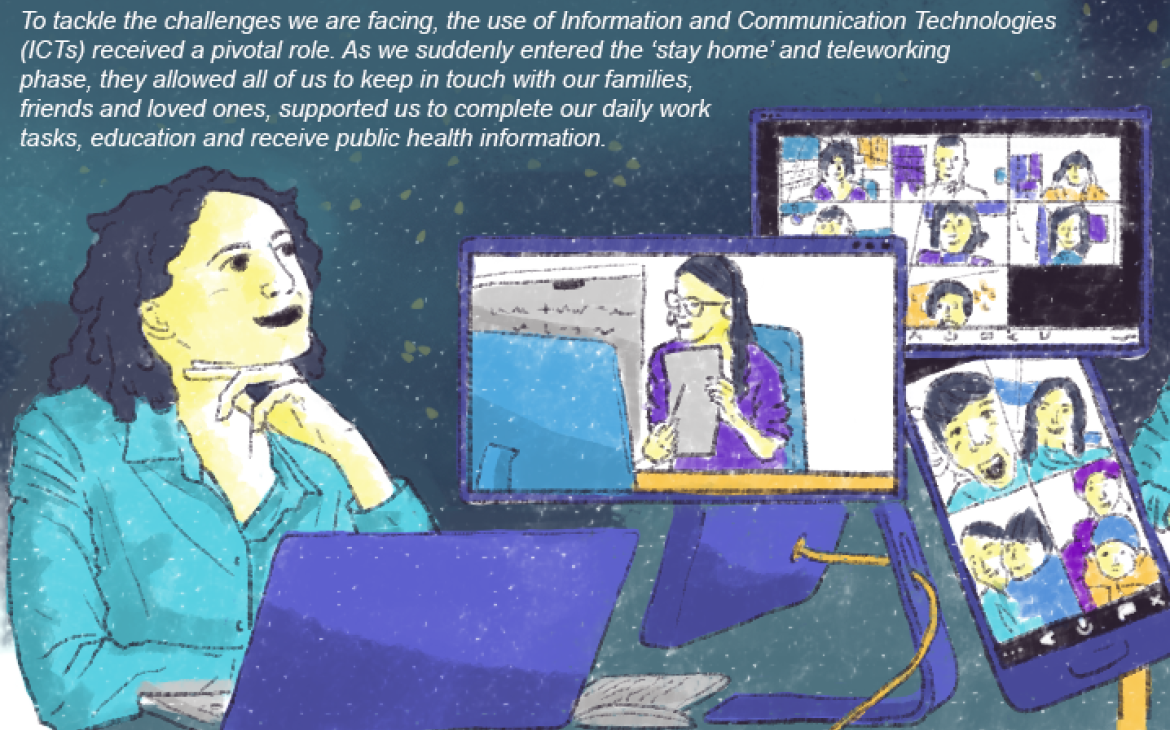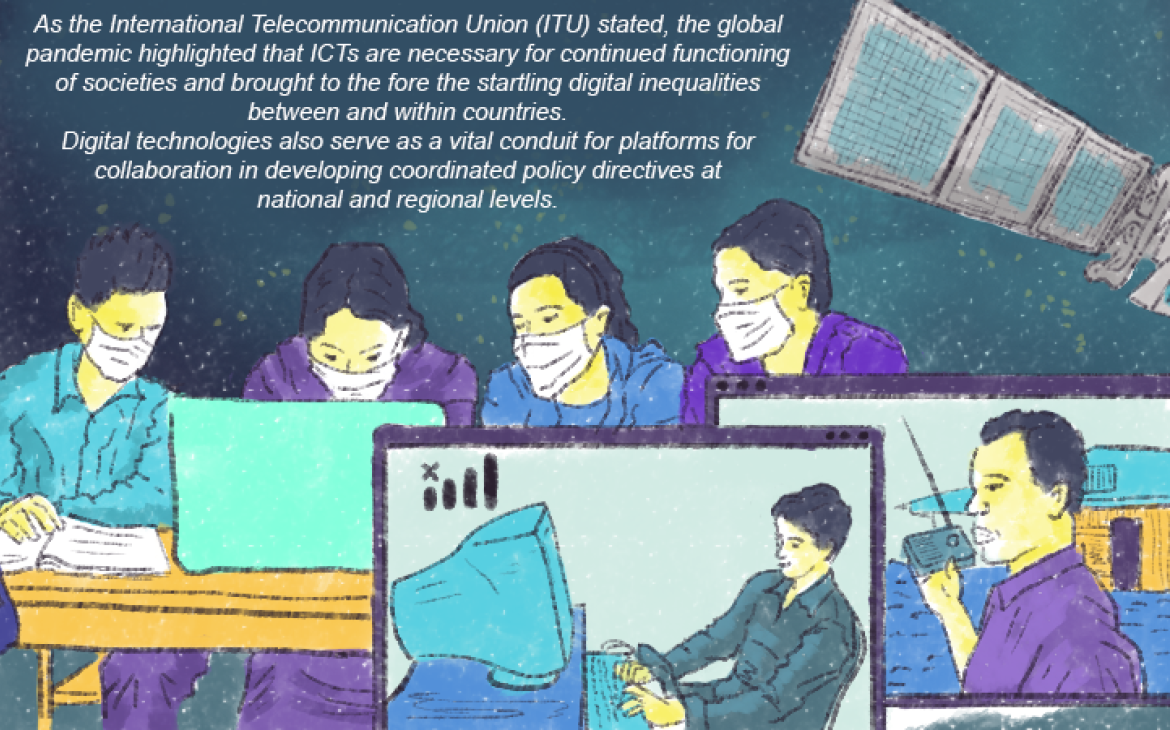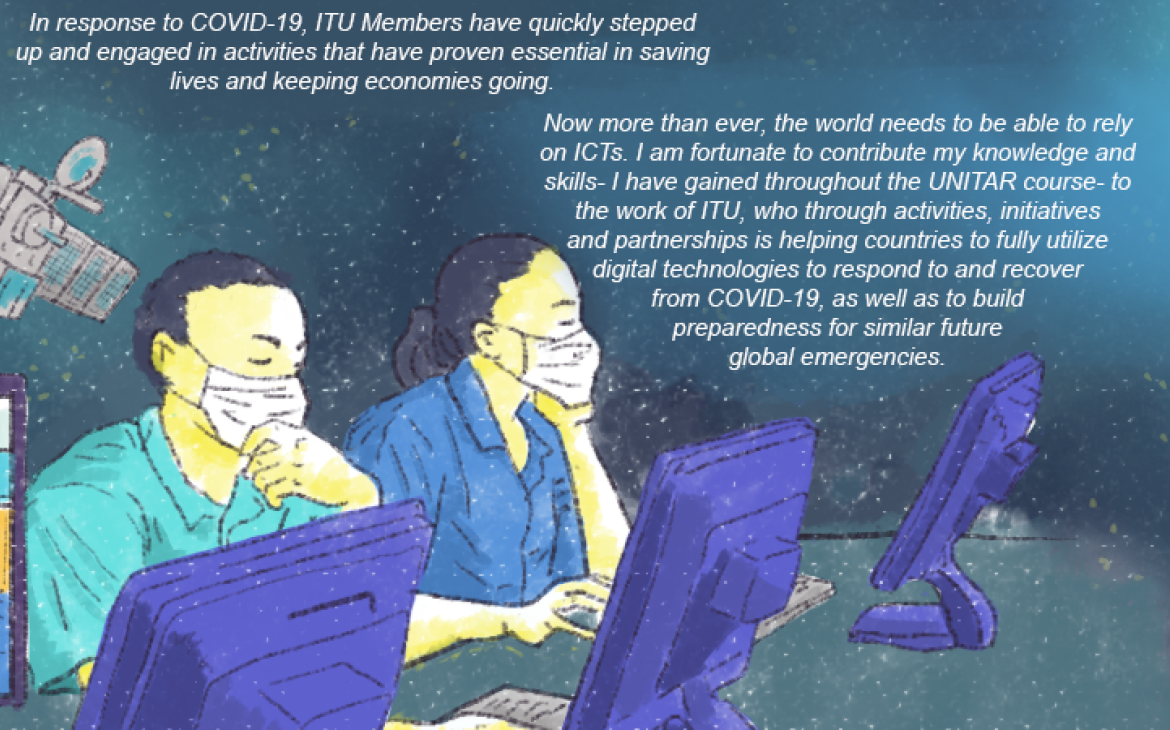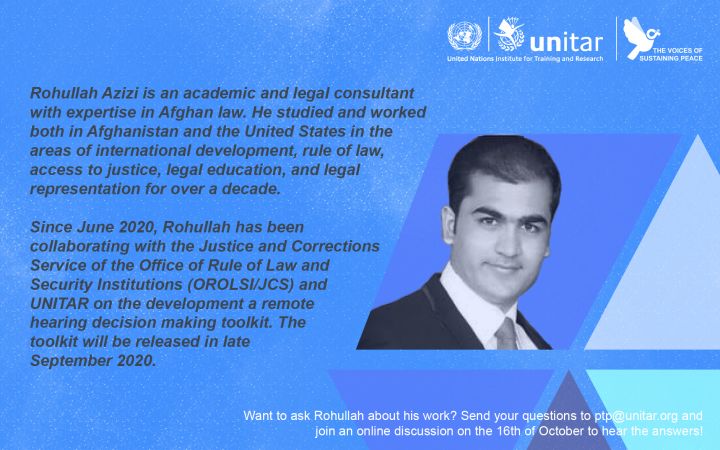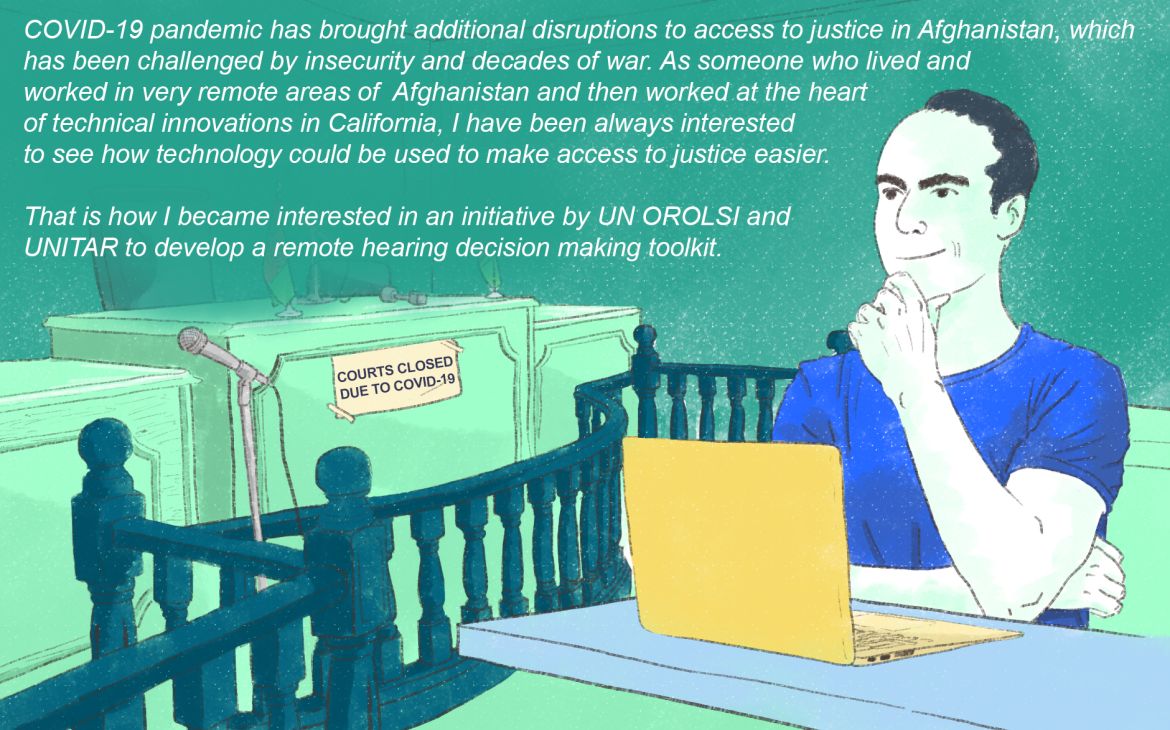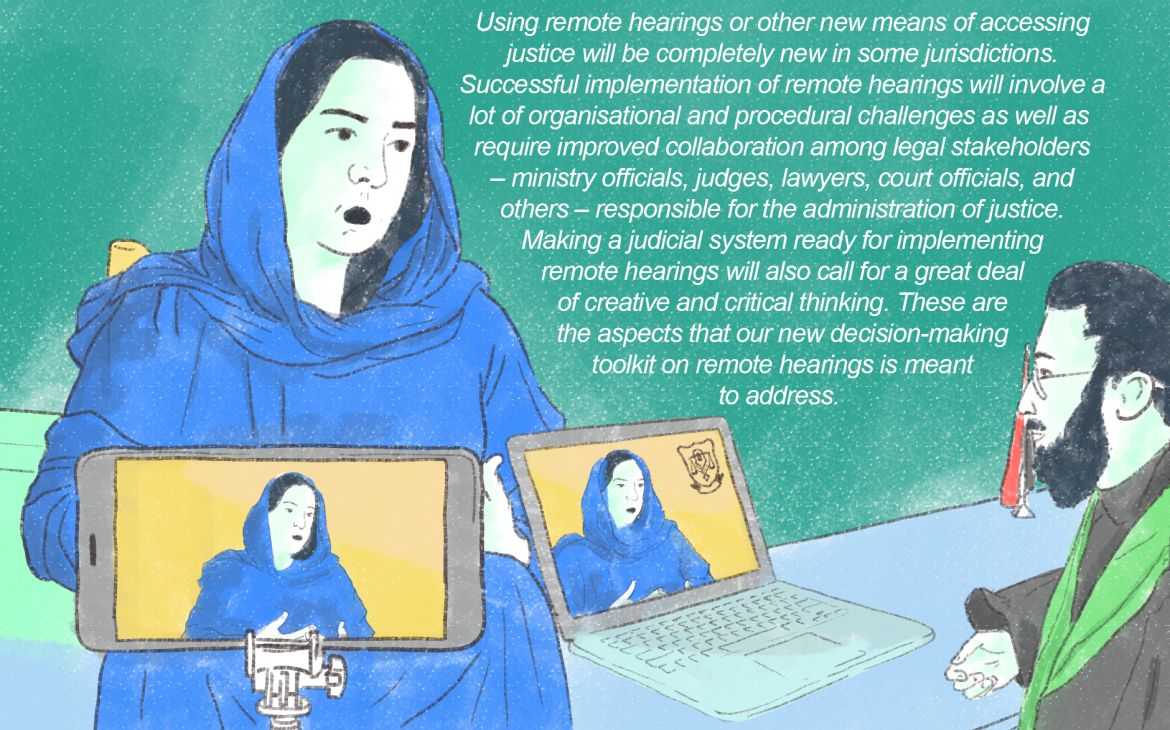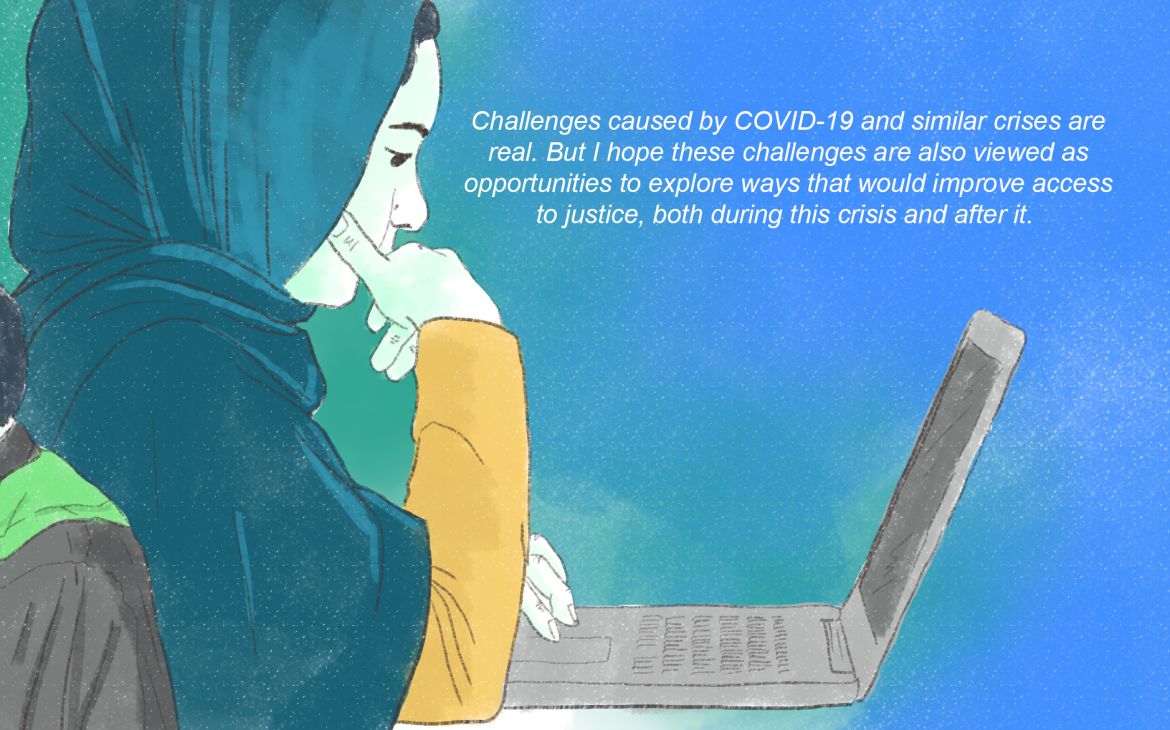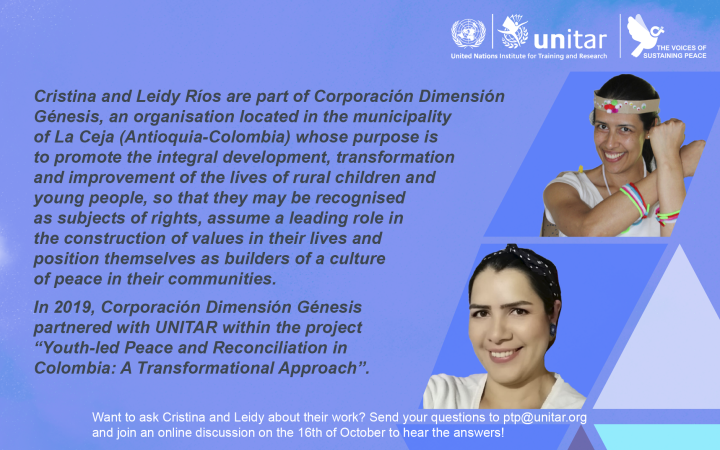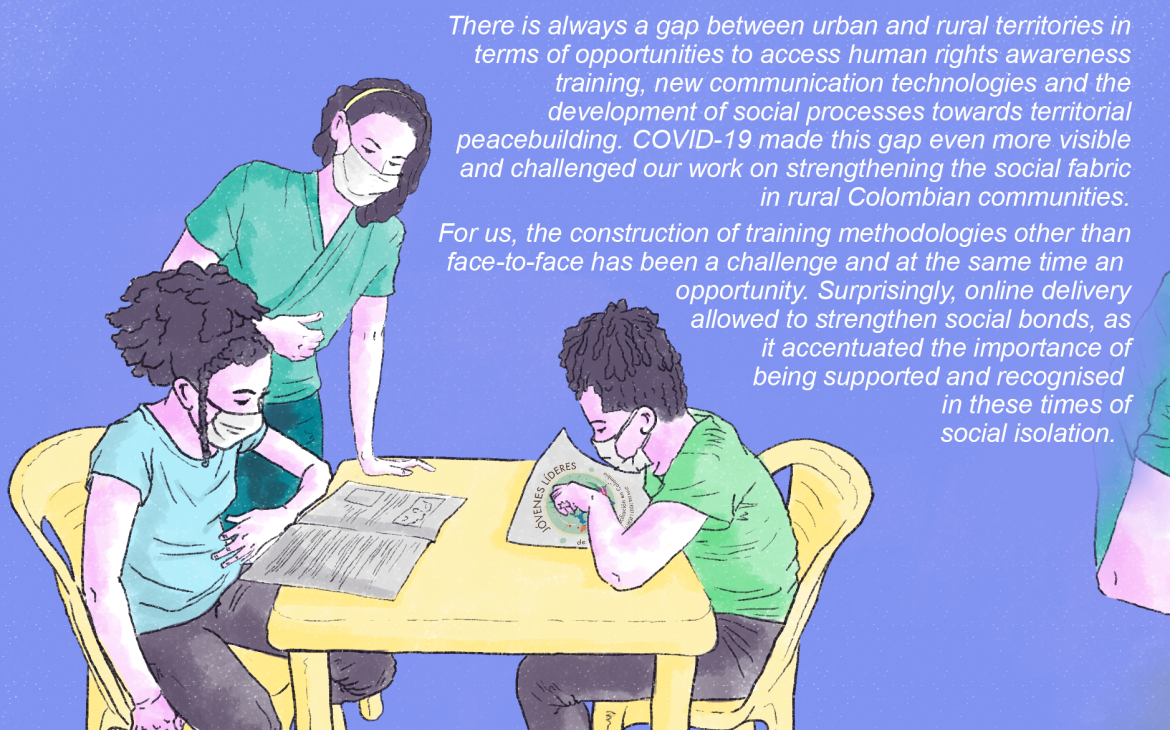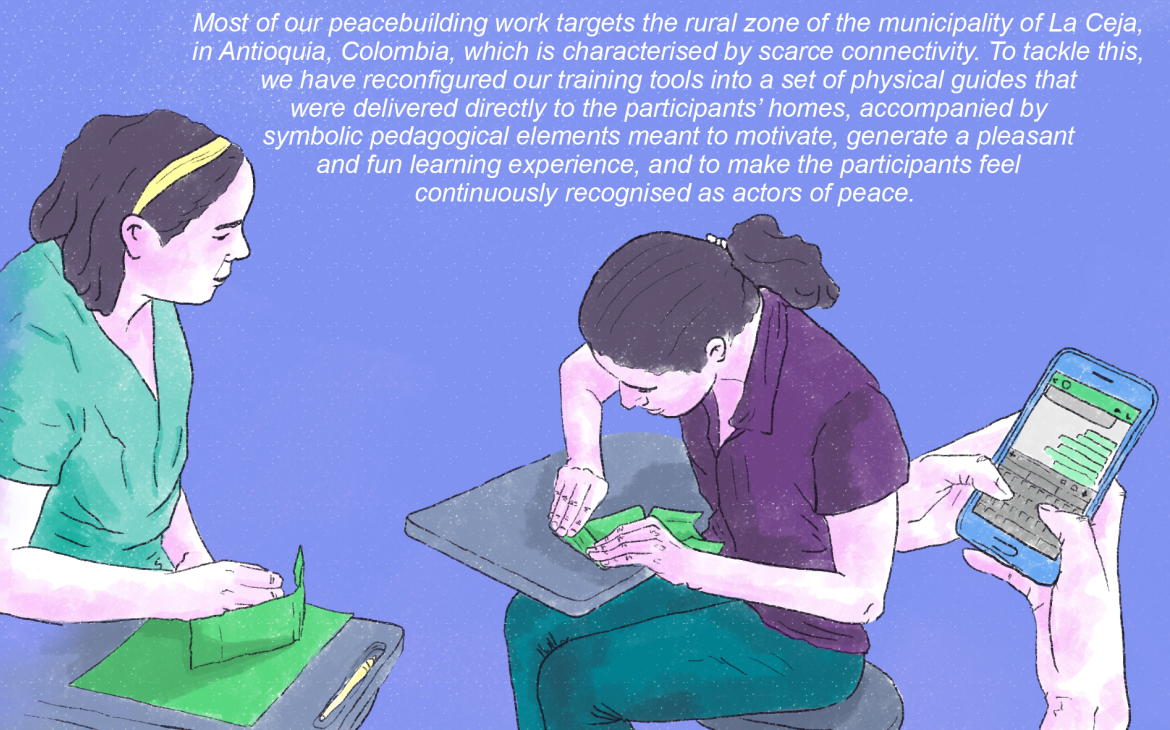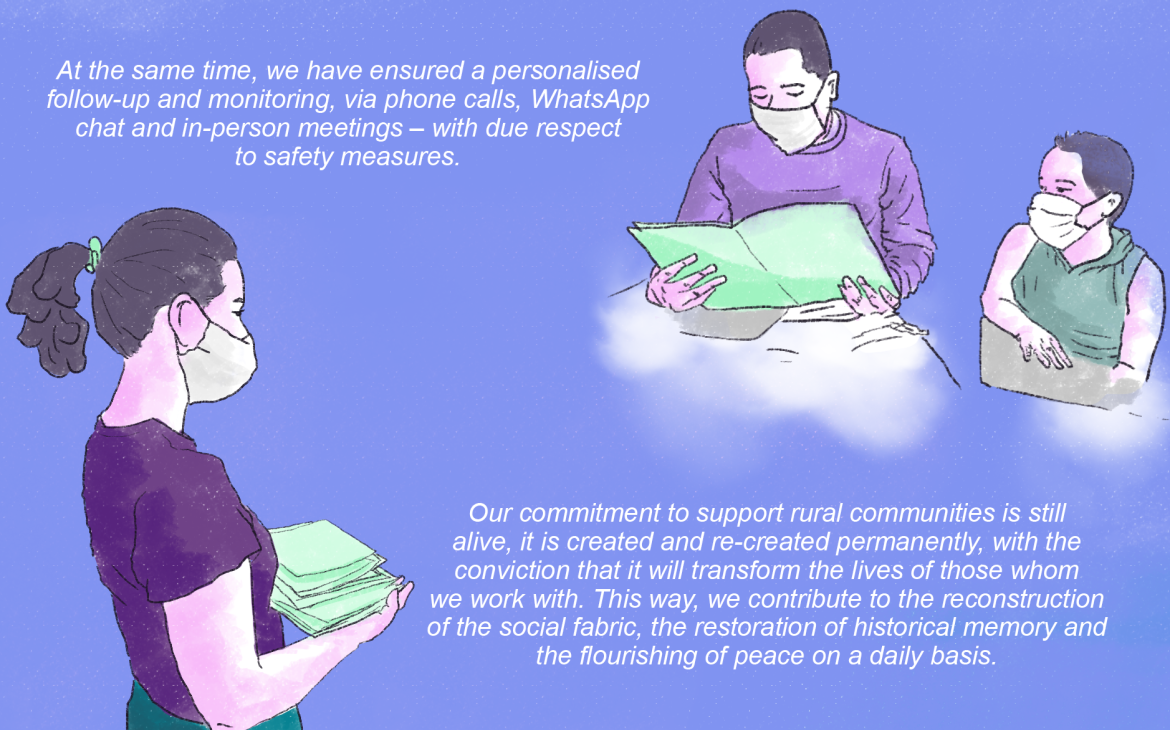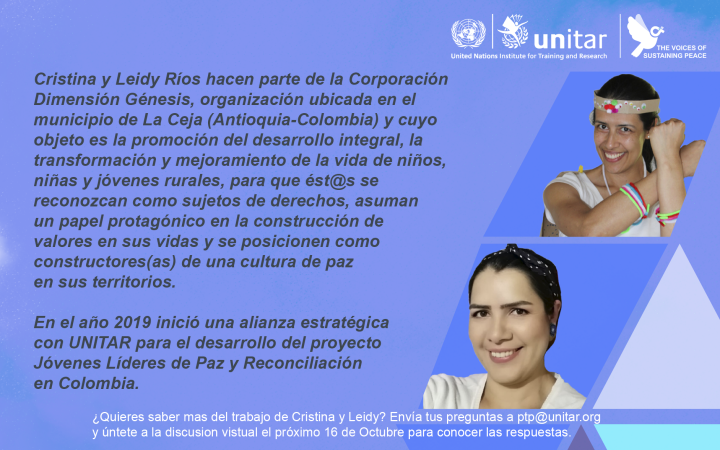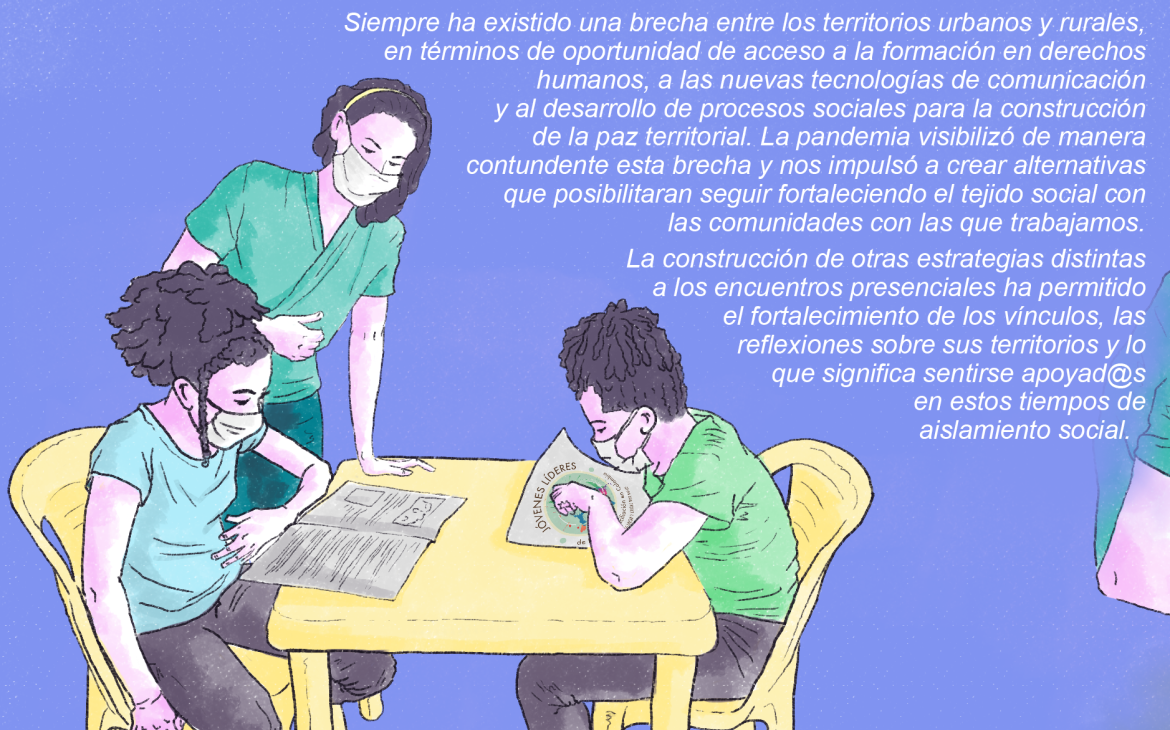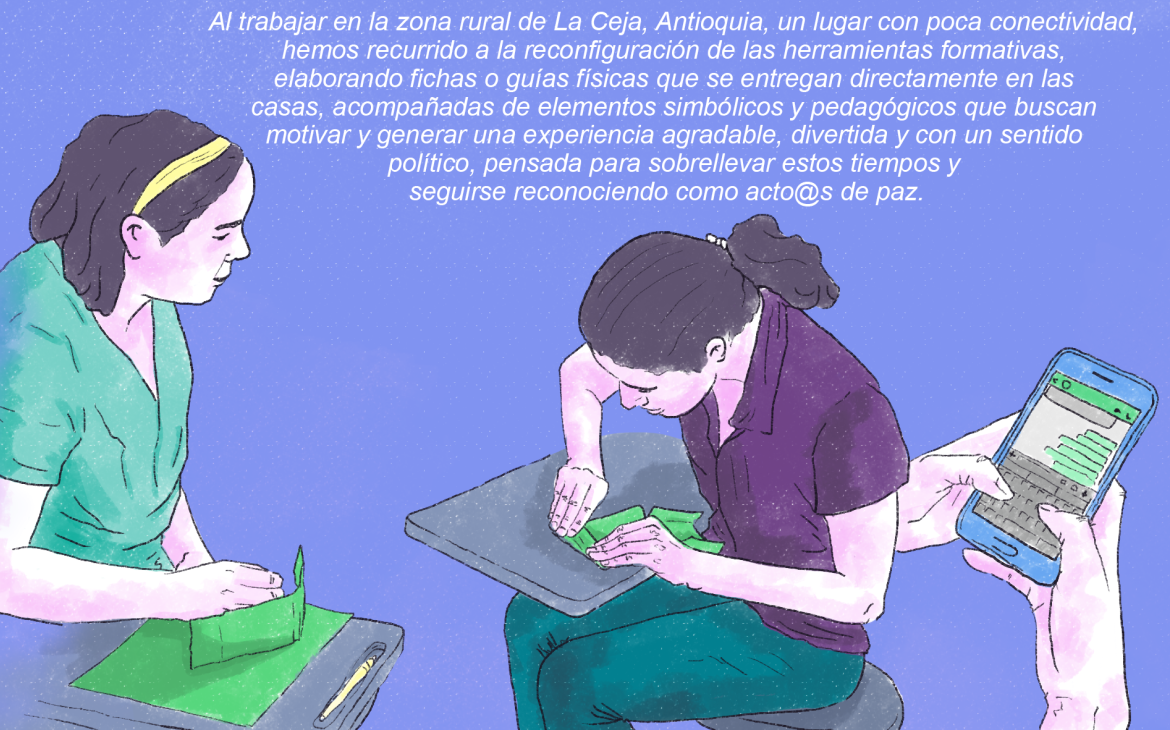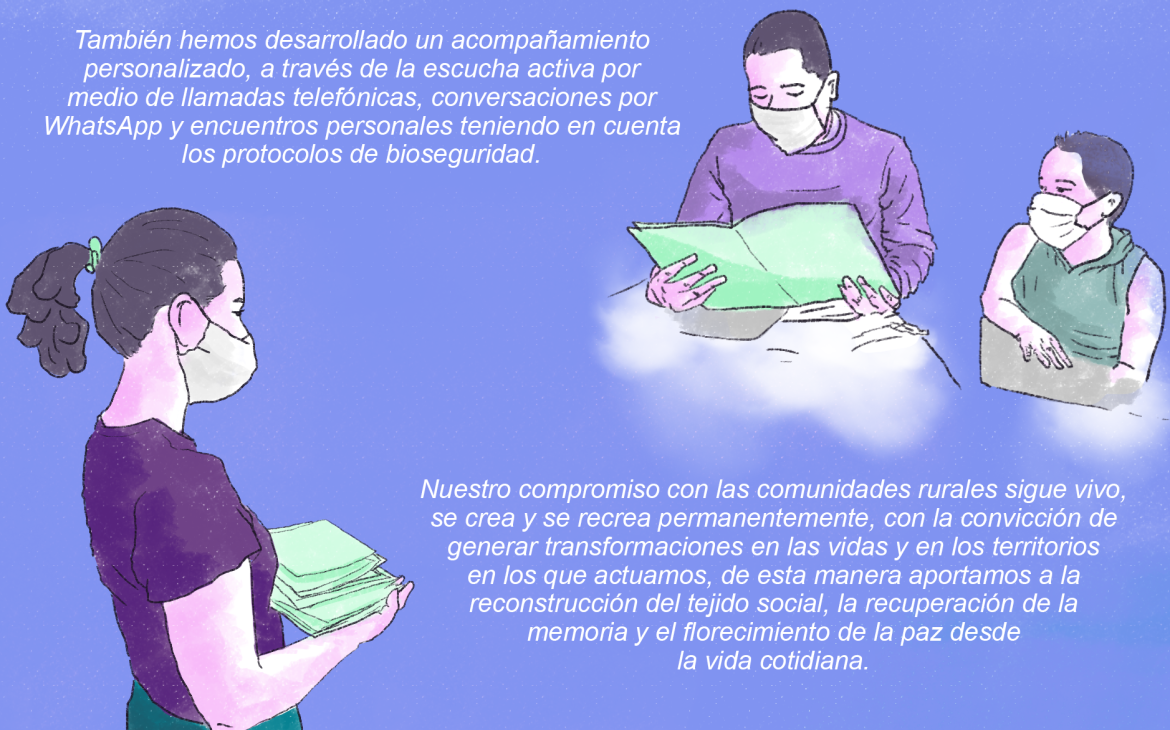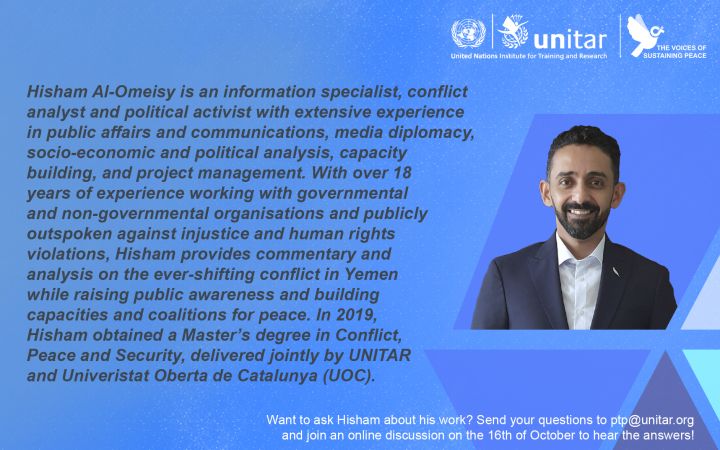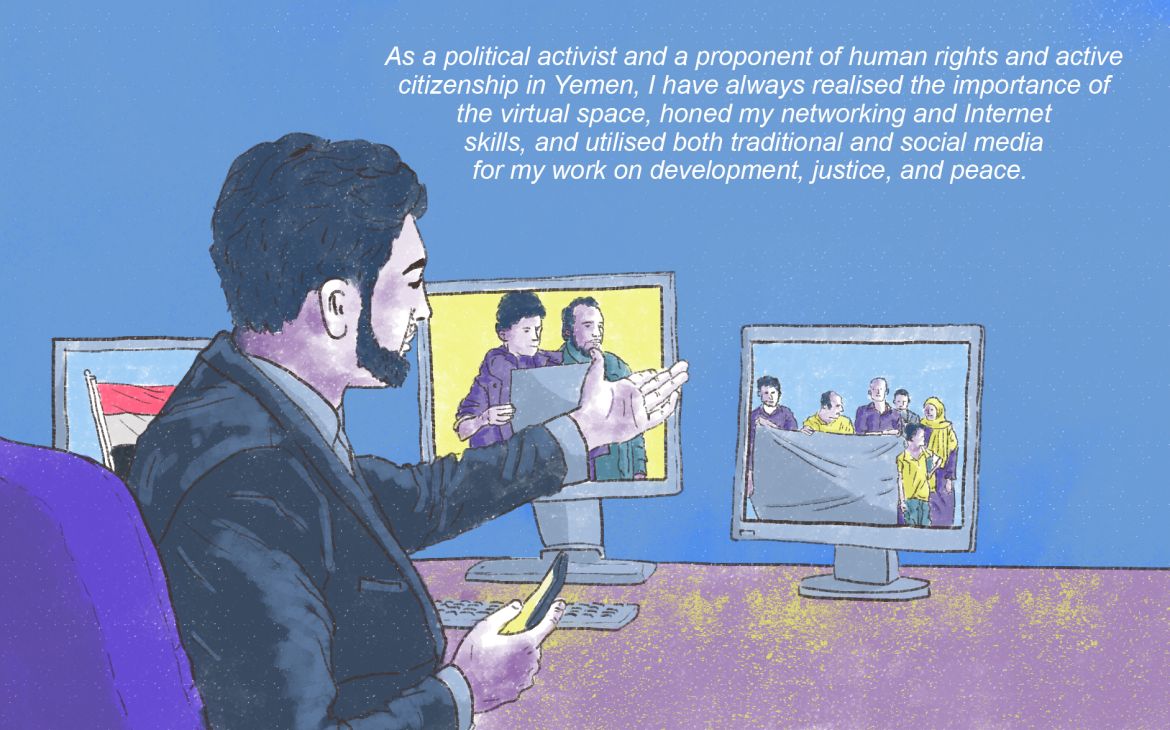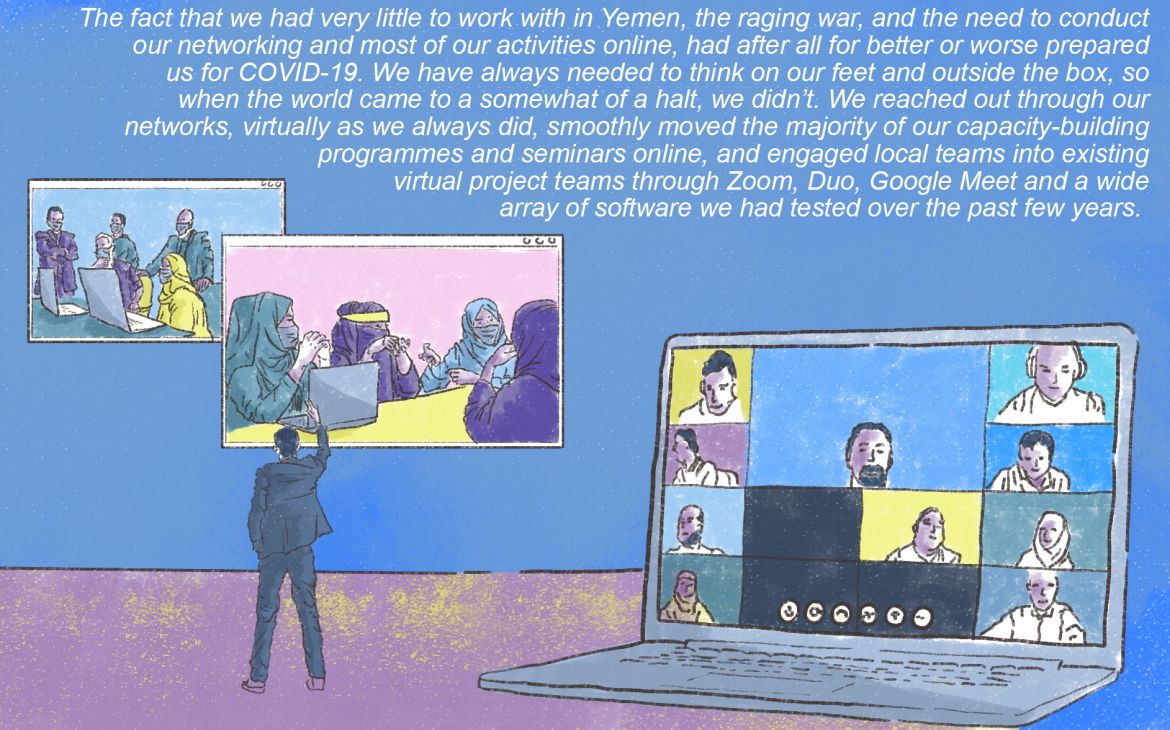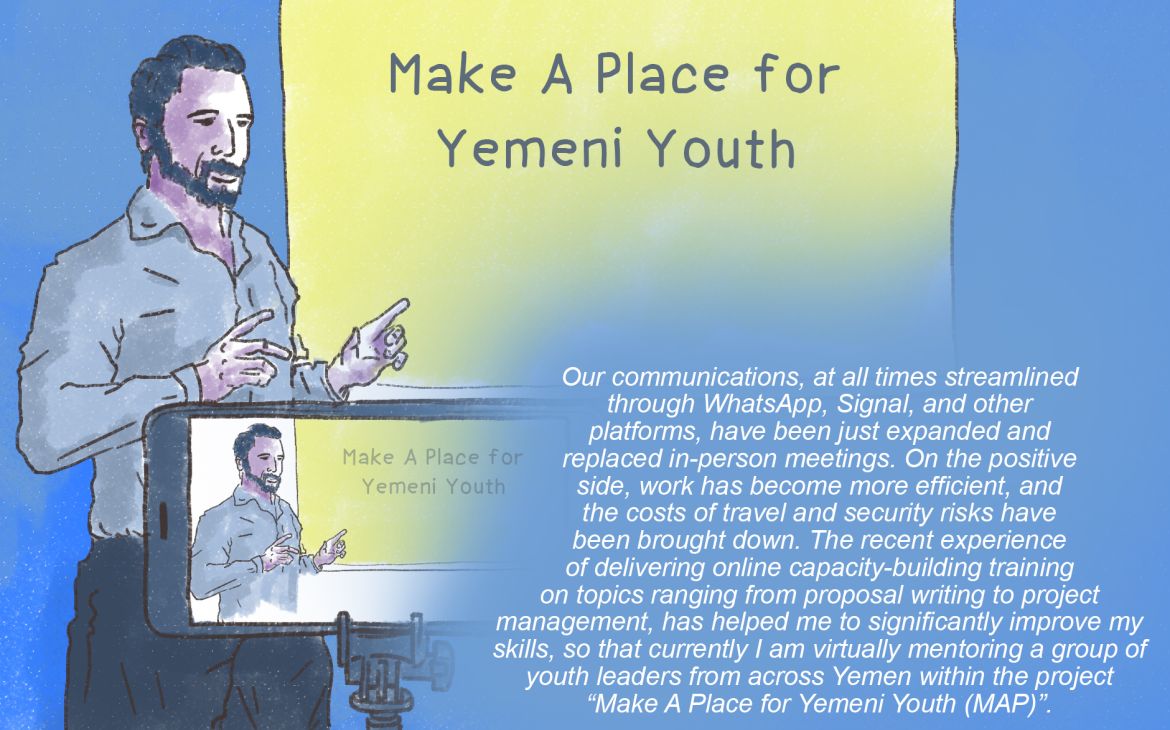Communications campaign and interactive conference to mark the International Day of Peace and the UNITAR Division for Peace Advisory Board side event in the wider context of the 75th anniversary of the United Nations organised under the theme “Shaping Peace Together”
Click here to watch the full recording. The video in English and Spanish as well as a written summary of the discussion will follow in February.
The global campaign “UN75 – Shaping Our Future Together”, intended to mark the 75th anniversary of the United Nations, was launched in January 2020 and aimed to dedicate the entire year to the amplification of the vast diversity of grassroots voices from the communities that the United Nations is mandated to serve. Following the call of the Secretary-General, various actors and institutions in the UN family have been designing and implementing a multitude of tools meant to listen to people across the world and learn about their experience of overcoming global challenges, including some of the most acute of them – persistent violent conflicts and instability.
The long-planned campaign came shortly ahead of the unplanned global health crisis. While posing an unprecedented challenge to the implementation of the sustaining peace agenda, the pandemic has at the same time had a remarkable positive effect on spurring innovation all across the related thematic areas, both in terms of greater digitalisation and new approaches to project implementation. It has also reiterated the critical value of strengthened partnerships with local actors.
In response to this double call from the community of nations and the COVID-19 pandemic, UNITAR Division for Peace will contribute to the ongoing global conversation by:
- communicating about the grassroots sustaining peace innovations with the original local voices;
- using these personal stories as an inspiration for a global cooperative action at all levels;
- showcasing innovations in various related thematic areas and using them as a starting point for further innovative developments to accommodate the needs under the new normal;
- bringing together high-level and local peace actors to raise the awareness of and lead the narrative in innovation for sustaining peace.
This way, the Division for Peace aims to silence the guns while elevating the voices of grassroots heroes serving on the frontlines of the battle against the pandemic.
If you have comments or questions related to the campaign or the online discussion, as well as ideas of new projects and partnerships that can help us build back better when it comes to building capacities for peace, contact us at ptp@unitar.org.
PART 1: 21 September – The Voices of Sustaining Peace: Social Media Campaign
Below and on our social media channels, we featured some real personal stories of innovative approaches to promoting peace during the pandemic.
Some of the themes included:
- Peacebuilding and Mediation
- Justice
- Humanitarian Action
- Youth, Peace and Security
- Women, Peace and Security
PART 2: 20 JANUARY 2021 – Sustaining Peace and Rapid Innovation in the Face of COVID-19: Meet the (S)Heroes – UNITAR Division for Peace Advisory Board Side Event
On the occasion of the 12th Session of the UNITAR Division for Peace Advisory Board Meeting, UNITAR held a virtual conference on 20 January 2021, which brought together the protagonists of the inspiring stories below and high-level experts in peace and security.
The discussion focused on:
- examples of real challenges that each of the story protagonists faced in their peacebuilding/ humanitarian/ development work as a result of the COVID-19 pandemic;
- innovative tools and approaches used to deal with these challenges and continue capacity building for peace;
- possible ways to address existing capacity gaps and successfully adjust to the “new normal” and build back better through stronger partnerships and multi-sectoral collaboration.
Moderator: Mr. Alan Doss, Special Advisor and Former President of the Kofi Annan Foundation, Former Special Representative of the UN Secretary-General to the Democratic Republic of the Congo, UNITAR Division for Peace Advisory Board Member
Keynote speaker: Mr. Fabrizio Hochschild-Drummond, UN Under-Secretary-General, Special Adviser to the Secretary-General on the Commemoration of the United Nations 75th Anniversary
Story protagonists:
- Ms. Orsolya Bader, Digital Networks & Society Department, Telecommunication Development Bureau, International Telecommunication Union; Participant in the Master’s programme in Humanitarian Action and Peacebuilding by UNITAR/ Oxford Brookes University (OBU)
- Mr. Hisham Al-Omeisy, Conflict analyst, Yemen; Alumni of the Master’s programme in Conflict, Peace and Security by UNITAR/ Universitat Oberta de Catalunya (UOC)
- Ms. Cristina and Ms. Leidy Ríos, Heads of Corporación Génesis, an NGO dedicated to peacebuilding in Colombia
- Mr. Ali Chahine, Peacebuilding consultant and facilitator in MENA region, UNITAR Mediation and Conflict Analysis Trainer
- Mr. Rohullah Azizi, Curriculum Adviser at Afghanistan Legal Education Project (ALEP), Appeals Representative, Fulbright Scholar
Click here to watch the full recording. The video in English and Spanish as well as a written summary of the discussion will follow in February.
If you have comments or questions related to the campaign or the online discussion, as well as ideas of new projects and partnerships that can help us build back better when it comes to building capacities for peace, contact us at ptp@unitar.org.
Ali Chahine - Facilitating dialogue in the divided communities of Libya
"Since the beginning of the outbreak in March 2020, I have been training peace activists in the MENA region. The first cases have brought about stigma that sometimes turned against the whole ethnic and religious groups as well as refugees and internally displaced persons. The pandemic has also limited the opportunities for divided communities to interact. On the other hand, in some areas of Tunisia and Libya characterized by tensions between civil society and authorities, COVID has stimulated a higher level of collaboration between them to be able to address the related public health risks together.
To continue our trainings, we have adopted the materials to be easily conveyed through online sessions. To face the problem of power cuts and weak internet connection, we posted the material and recordings of the sessions online so that the trainees could access them once they have better access. We conducted thorough need assessment and consulted the trainees on how best to deliver the trainings online and most suitable timings. For example, Libyan trainees suggested to carry the trainings in the evenings when the Internet was fastest. We have also mentored the trainees with limited experience in using web-based tools and applications, which allowed us to gain the trainees’ ownership, commitment and responsibility to make this training programme successful."
Ali Chahine, Peacebuilding and Mediation Consultant
Orsolya Bader - Using Communication Technologies to save lives and keep economies goes
“To tackle the challenges we are facing, the use of Information and Communication Technologies (ICTs) received a pivotal role. As we suddenly entered the ‘stay home’ and teleworking phase, they allowed all of us to keep in touch with our families, friends and loved ones, supported us to complete our daily work tasks, education and receive public health information.
As the International Telecommunication Union (ITU) stated, the global pandemic highlighted that ICTs are necessary for continued functioning of societies and brought to the fore the startling digital inequalities between and within countries. Digital technologies also serve as a vital conduit for platforms for collaboration in developing coordinated policy directives at national and regional levels. In response to COVID-19, ITU Members have quickly stepped up and engaged in activities that have proven essential in saving lives and keeping economies going.
Now more than ever, the world needs to be able to rely on ICTs. I am fortunate to contribute my knowledge and skills- I have gained throughout the UNITAR course- to the work of ITU, who through activities, initiatives and partnerships is helping countries to fully utilize digital technologies to respond to and recover from COVID-19, as well as to build preparedness for similar future global emergencies. “
Orsolya Bader, Digital Networks and Society Department, International Telecommunication Union
Rohullah Azizi - Improving Access to Justice through Remote Hearings
"COVID-19 pandemic has brought additional disruptions to access to justice in Afghanistan, which has been challenged by insecurity and decades of war. As someone who lived and worked in very remote areas of Afghanistan and then worked at the heart of technical innovations in California, I have been always interested to see how technology could be used to make access to justice easier.
That is how I became interested in an initiative by UN OROLSI and UNITAR to develop a remote hearing decision making toolkit.
Using remote hearings or other new means of accessing justice will be completely new in some jurisdictions. Successful implementation of remote hearings will involve a lot of organisational and procedural challenges as well as require improved collaboration among legal stakeholders – ministry officials, judges, lawyers, court officials, and others – responsible for the administration of justice. Making a judicial system ready for implementing remote hearings will also call for a great deal of creative and critical thinking. These are the aspects that our new decision-making toolkit on remote hearings is meant to address.
Challenges caused by COVID 19 and similar crises are real. But I hope these challenges are also viewed as opportunities to explore ways that would improve access to justice, both during this crisis and after it."
Rohullah Azizi, Curriculum Adviser at Afghanistan Legal Education Project (ALEP), Appeals Representative, Fulbright Scholar
Learn more about the Remote Hearing Toolkit here.
Cristina and Leidy Ríos - Strengthening social fabric in the rural communities of Colombia
"There is always a gap between urban and rural territories in terms of opportunities to access human rights awareness training, new communication technologies and the development of social processes towards territorial peacebuilding. COVID-19 made this gap even more visible and challenged our work on strengthening the social fabric in rural Colombian communities.
For us, the construction of training methodologies other than face-to-face has been a challenge and at the same time an opportunity. Surprisingly, online delivery allowed to strengthen social bonds, as it accentuated the importance of being supported and recognised in these times of social isolation.
Most of our peacebuilding work targets the rural zone of the municipality of La Ceja, in Antioquia, Colombia, which is characterised by scarce connectivity. To tackle this, we have reconfigured our training tools into a set of physical guides that were delivered directly to the participants’ homes, accompanied by symbolic pedagogical elements meant to motivate, generate a pleasant and fun learning experience, and to make the participants feel continuously recognised as actors of peace. At the same time, we have ensured a personalised follow-up and monitoring, via phone calls, WhatsApp chat and in-person meetings – with due respect to safety measures.
Our commitment to support rural communities is still alive, it is created and re-created permanently, with the conviction that it will transform the lives of those whom we work with. This way, we contribute to the reconstruction of the social fabric, the restoration of historical memory and the flourishing of peace on a daily basis."
Cristina and Leidy Ríos, Heads of Corporación Génesis, an NGO dedicated to peacebuilding in Colombia
Learn more about "Youth-led Peace and Reconciliation in Colombia: A Transformational Approach”.
Cristina y Leidy Ríos - Fortaleciendo el tejido social en las comunidades rurales colombianas
"Siempre ha existido una brecha entre los territorios urbanos y rurales, en términos de oportunidad de acceso a la formación en derechos humanos, a las nuevas tecnologías de comunicación y al desarrollo de procesos sociales para la construcción de la paz territorial. La pandemia visibilizó de manera contundente esta brecha y nos impulsó a crear alternativas que posibilitaran seguir fortaleciendo el tejido social con las comunidades con las que trabajamos.
La construcción de otras estrategias distintas a los encuentros presenciales ha sido un desafío y una oportunidad, pues han permitido el fortalecimiento de los vínculos, las reflexiones sobre sus territorios y lo que ha significado en sus vidas sentirse apoyad@s y reconocid@s en estos tiempos de aislamiento social.
Al trabajar en la zona rural de La Ceja, Antioquia, un lugar con poca conectividad, hemos recurrido a la reconfiguración de las herramientas formativas, elaborando fichas o guías físicas que se entregan directamente en las casas, acompañadas de elementos simbólicos y pedagógicos que buscan motivar y generar una experiencia agradable, divertida y con un sentido político, pensada para sobrellevar estos tiempos y seguirse reconociendo como acto@s de paz. También hemos desarrollado un acompañamiento personalizado, a través de la escucha activa por medio de llamadas telefónicas, conversaciones por WhatsApp y encuentros personales teniendo en cuenta los protocolos de bioseguridad.
Nuestro compromiso con las comunidades rurales sigue vivo, se crea y se recrea permanentemente, con la convicción de generar transformaciones en las vidas y en los territorios en los que actuamos, de esta manera aportamos a la reconstrucción del tejido social, la recuperación de la memoria y el florecimiento de la paz desde la vida cotidiana."
Cristina y Leidy Ríos, lideresas de la Corporación Génesis, una organización dedicada a la construcción de paz en Colombia
“Jóvenes Líderes de Paz y Reconciliación en Colombia: un enfoque transformador”
Hisham Al-Omeisy - Building capacities and coalitions for peace in Yemen
"As a political activist and a proponent of human rights and active citizenship in Yemen, I have always realised the importance of the virtual space, honed my networking and Internet skills, and utilised both traditional and social media for my work on development, justice, and peace.
The fact that we had very little to work with in Yemen, the raging war, and the need to conduct our networking and most of our activities online, had after all for better or worse prepared us for COVID-19. We have always needed to think on our feet and outside the box, so when the world came to a somewhat of a halt, we didn’t. We reached out through our networks, virtually as we always did, smoothly moved the majority of our capacity-building programmes and seminars online, and engaged local teams into existing virtual project teams through Zoom, Duo, Google Meet and a wide array of software we had tested over the past few years.
Our communications, at all times streamlined through WhatsApp, Signal, Threema, and other platforms, have been just expanded and replaced in-person meetings. On the positive side, work has become more efficient, and the costs of travel and security risks have been brought down. The recent experience of delivering online capacity-building training on topics ranging from proposal writing to project management, has helped me to significantly improve my skills, so that currently I am virtually mentoring a group of youth leaders from across Yemen within the project “Make A Place for Yemeni Youth (MAP)”."
Hisham Al-Omeisy, Conflict analyst, Yemen; Alumnus of the UNITAR/Universitat Oberta de Catalunya Master's programme in Conflict, Peace and Security


